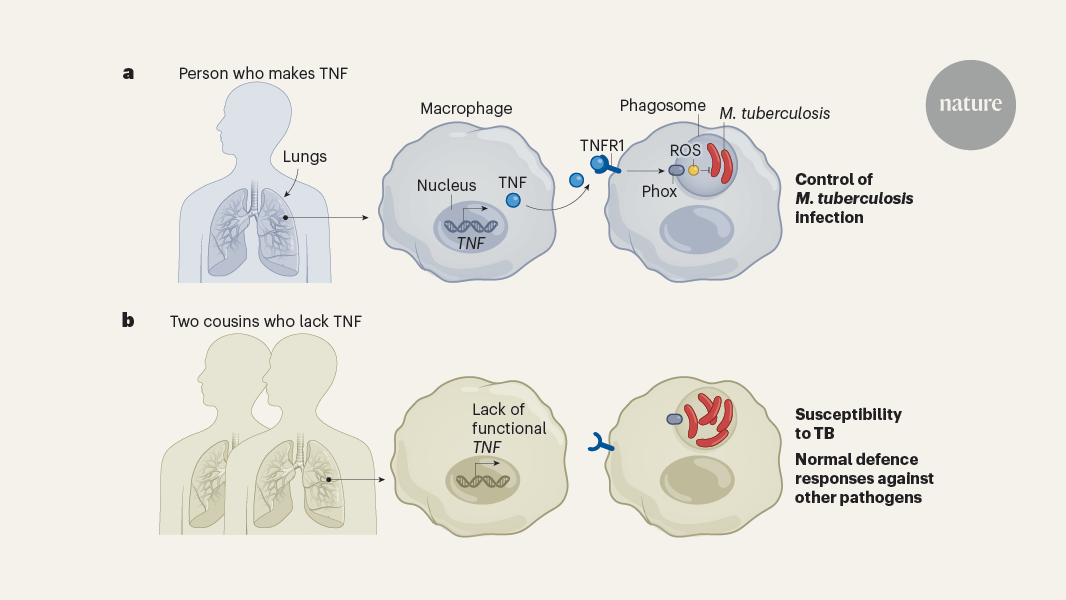Surprising Insights into the Role of TNF in Human Immune Response to Infections
The article discusses new findings about the role of the immune signaling molecule TNF in the human immune response to infections. Traditionally, TNF has been considered a key player in the immune system's ability to fight infections. However, the research by Arias et al. has uncovered unexpected insights.
The article explains that TNF was first discovered nearly 50 years ago in mice infected with a type of microorganism called a mycobacterium. This discovery led to the understanding that TNF is a crucial immune signaling molecule. However, the new study by Arias et al. has found that humans can effectively fight infections even in the absence of TNF.
This challenges the prevailing view of TNF's importance in the human immune response. The findings suggest that the human immune system has alternative mechanisms to combat infections when TNF is lacking. This could have significant implications for our understanding of the complex workings of the human immune system and potential new avenues for therapeutic interventions.
Customize Summary
Rewrite with AI
Generate Citations
Translate Source
To Another Language
Generate MindMap
from source content
Visit Source
www.nature.com
People who lack the immune protein TNF can still fight infection
Key Insights Distilled From
by Charlie J. P... at www.nature.com 08-28-2024
https://www.nature.com/articles/d41586-024-02657-2
Deeper Inquiries
